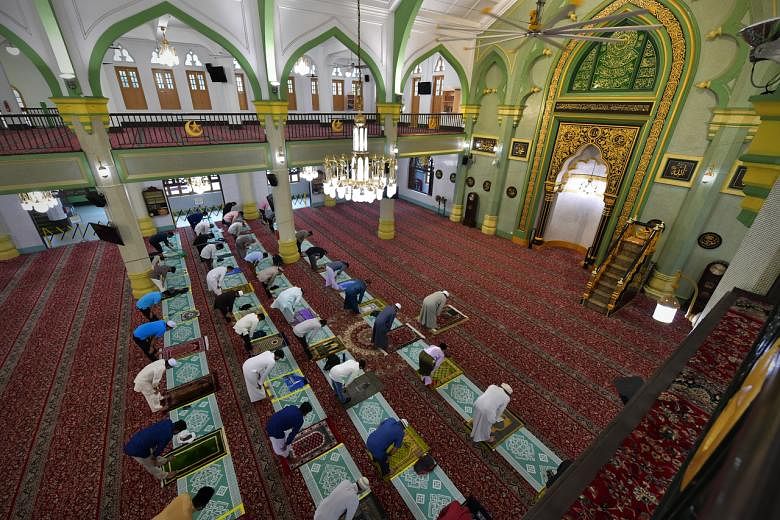SINGAPORE - Islamic religious leaders have helped Malay/Muslims forge a progressive identity while being respectful to Singapore's local context, said Minister in the Prime Minister's Office Maliki Osman on Thursday (Sept 3).
He lauded their efforts in steering the community through sensitive issues, and said maintaining religious harmony requires everyone - including Malay/Muslims - to put in continuous effort.
That is why the role of Malay/Muslim religious leaders is crucial, he added.
Said Dr Maliki: "The essence of leadership is the ability to make sound and well-considered decisions even if they are unpopular and are difficult to be accepted by some segments, but should be done in the interest of the larger community and society."
Speaking in Parliament during the debate on the President's Address, Dr Maliki - who is also Second Minister for Education as well as Foreign Affairs - touched on how the ongoing Covid-19 pandemic has posed unprecedented challenges for Malay/Muslims.
He also spoke about how Islamic religious leaders have had to make tough decisions to help stop the spread of the virus, such as the suspension of Friday prayers in mosques and deferring this year's haj pilgrimage.
Dr Maliki said he was grateful that the religious leaders acted early.
He also urged the Malay/Muslim community to help its more vulnerable members level up, and pledged that the Government will continue doing so as well.
One such effort is the Uplift programme by the Education and Social and Family Development ministries, he said.
Under the programme, a coordinator works closely with disadvantaged students and their families to connect them with local community programmes and resources, including social workers and social service agencies, he added.
The Government, Dr Maliki said, will continue to strengthen such partnerships across different agencies and the community, so that it can continue providing support for disadvantaged families.
He added that it is understandable that such families are unable to tackle long-term issues like education, upskilling and financial planning as they usually live paycheque to paycheque and would rather focus on immediate concerns.
But Dr Maliki said he was concerned about such families, and he called on the community to come together to improve the circumstances of these families.
He said: "If we rally together as a community, we can help relieve some of these pressures for fellow members of our community and citizen - to stabilise them and work together to chart a brighter future for their children."


